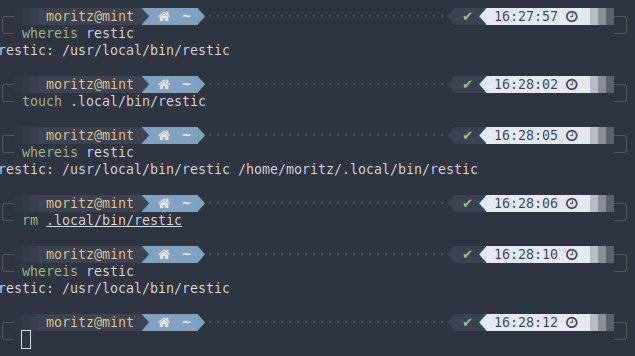Hey vellofrell,
Welcome to the forums!
This is likely because you have multiple versions installed to different places. Linux will look for them in a certain order, so it’s probably finding the v0.8.3 version first. If you run
/usr/local/bin/restic version
does it give you the new version? If so it’s there, but it’s just hidden behind the other version.
Here are some methods to fix this, I’d start with the top, and if that doesn’t work, go on to the next. Please copy and paste one line at a time, as with any time you use sudo, they are sensitive to being typed incorrectly, or being fed all at once.
First try (If you installed restic from Ubuntu’s store, repositories, apt or aptitude, etc) :
sudo apt remove restic
hash -r
restic version
After doing the steps cdhowie suggested, you could next try:
The next way I’d try is:
sudo cp /usr/local/bin/restic $(which restic)
hash -r
restic version
That will overwrite the 0.8.3 binary. Check if the version number is right this time.
If that doesn’t work, here’s a full method that only assumes you’re using a 64-bit Intel/AMD install (If not, please let us know and I can change it!):
sudo apt install curl
sudo mv `which restic`{,.bak}
sudo chmod a-x `which restic.bak`
wget https://github.com/restic/restic/releases/download/v0.9.6/restic_0.9.6_linux_amd64.bz2
bunzip2 restic_0.9.6_linux_amd64.bz2
sudo install restic_0.9.6_linux_amd64 -o root -g root -m 0755 /usr/local/bin/restic
hash -r
restic version
Ideally, any one of those would work. But I suggest trying them in the order they’re written.
Please let us know if you get it working!
Good luck!
